
Health is a crown on the heads of the healthy that only the sick can see.
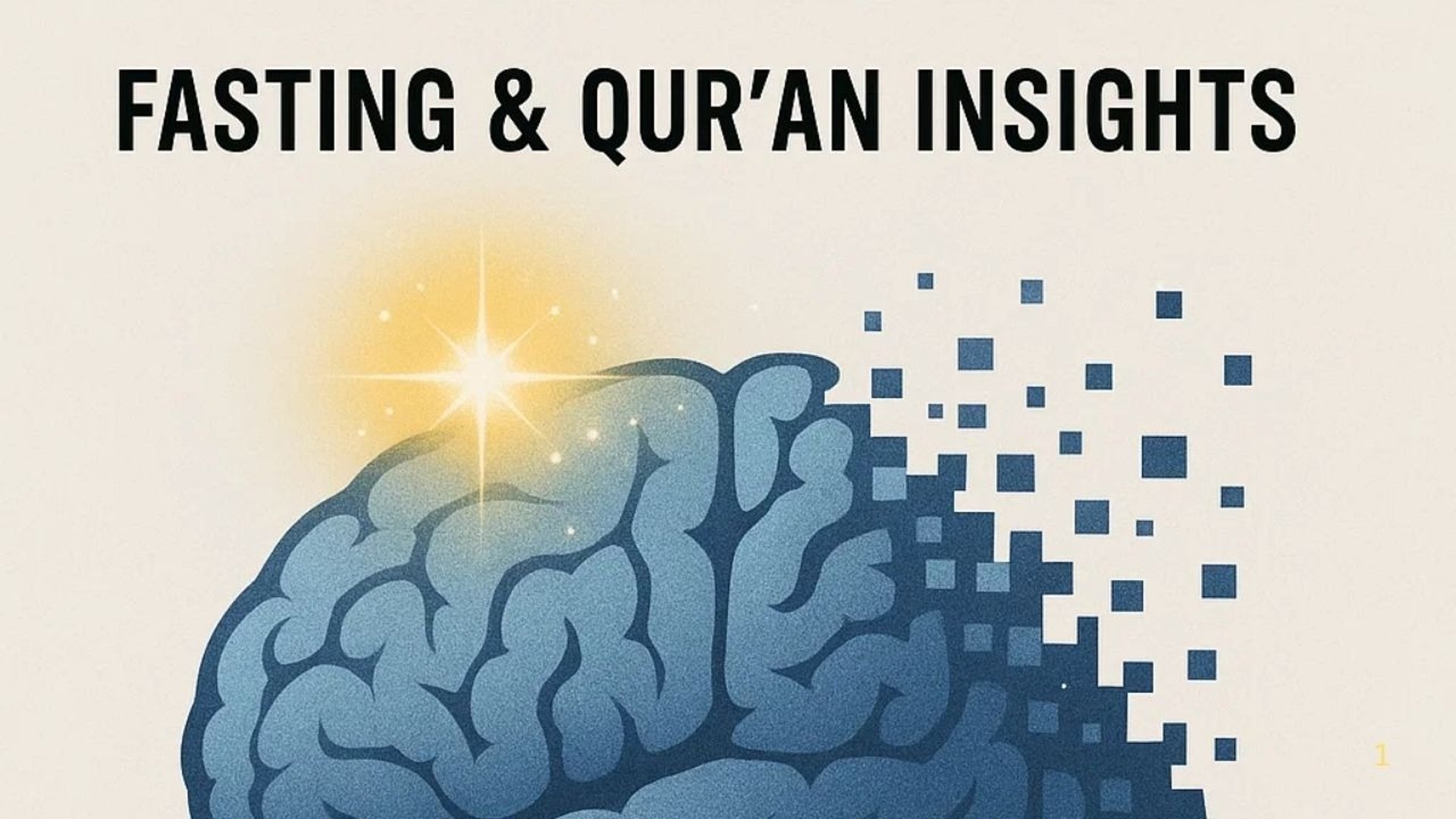
🧠✨ Can Alzheimer’s Disease and Dementia Be Reversed? | Fasting & Qur’an Insights
Explore whether Alzheimer’s and dementia can be reversed. 🧠✨ Discover the medical facts, the potential of fasting, and the healing power of Qur’anic practices for brain health.
NEUROPSYCHIATRYNERVOUS SYSTEM DEMETIAFASTING
Dr Hassan Al Warraqi
9/27/202512 min read


🧠✨ Can Alzheimer’s Disease and Dementia Be Reversed? | Fasting & Qur’an Insights
Explore whether Alzheimer’s and dementia can be reversed. 🧠✨ Discover the medical facts, the potential of fasting, and the healing power of Qur’anic practices for brain health.
The possibility of reversing Alzheimer's is a hot topic in brain research now.
Right now, most doctors agree that Alzheimer's can't be reversed. But, some interesting studies about things like intermittent fasting and spiritual activities like reading the Quran suggest that they might help protect the brain and ease symptoms.
Understanding if Dementia Can Be Reversed: What the Research Says
Alzheimer's Disease: Where Reversal Stands Today
Important Points:
Alzheimer's can't be reversed. It gets worse over time.
We can't fix dead brain cells with today's tech.
Treatments try to slow things down and keep people functioning.
Starting treatment early seems to help the most with thinking skills.
Different Kinds of Dementia and If They Can Be Reversed
Dementias That Might Be Reversible (About 5-15% of Cases)
Dementia from not having enough vitamin B12
Thinking problems linked to thyroid issues
A condition called normal pressure hydrocephalus
Thinking problems caused by depression (sometimes called pseudo-dementia)
Thinking decline from medications
Dementia from long-term infections
Dementia Types That Can't Be Reversed
Alzheimer's disease (Most dementia cases, about 60-70%)
Vascular dementia (from strokes)
Lewy body dementia
Frontotemporal dementia
How Fasting Can Help the Brain and Prevent Dementia
Recent studies show that intermittent fasting can protect the brain. This gives us hope for preventing and dealing with thinking decline.
Autophagy: The Brain's Cleaning System
How Fasting Helps Clean the Brain
Fasting for a while (12-24 hours or more) starts a process called autophagy.
This process gets rid of clumps of amyloid plaques, which are linked to Alzheimer's.
It also clears out tau protein tangles that harm brain cells.
It removes bad mitochondria (the power plants of cells) in the brain.
It lowers brain inflammation, which is connected to thinking decline.
What the Studies Say: Fasting and Thinking Skills
Animal Study Results:
Alzheimer's got 50% better in mice that fasted.
Thinking skills improved in research models of dementia.
The start of brain disease symptoms was delayed.
Memory and long-term learning got better.
Human Study Results:
Intermittent fasting seems to improve thinking in early studies.
Fasting during Ramadan is linked to changes in the brain that make it more flexible.
Cutting calories is linked to fewer dementia risk factors.
The Mediterranean diet plus fasting seems to protect the brain even more.
Brain-Derived Neurotrophic Factor (BDNF) Boost
How Fasting Helps Brain Growth Factors:
BDNF goes up by 200-400% during fasting.
BDNF helps grow new brain cells.
It makes the connections between brain cells stronger, which improves learning and memory.
It protects brain cells from getting old and breaking down.
Islamic Fasting (Sawm) and Brain Benefits
Ramadan Fasting: Special Brain Protection
What Makes It Special:
Fasting for 12-16 hours every day for 30 days in a row.
No food or water during daylight hours.
Keeping a consistent sleep schedule.
Focusing on spiritual activities, which lowers stress and inflammation.
What Happens to the Brain Right Away (During Ramadan)
BDNF levels go up in the first week.
Thinking becomes more flexible, and attention spans get longer.
Emotions are easier to control, and stress goes down.
Sleep schedules improve, which helps memory.
Benefits That Last (After Ramadan)
Brain protection continues for months after Ramadan.
The brain gets better at using glucose (sugar) for energy, and insulin works better.
There are fewer signs of damage from stress in the brain.
The immune system works better, which lowers brain inflammation.
Safety for Dementia Patients
Islamic Rules About Fasting Exemptions
Fasting is not required for older people who are sick.
People with dementia don't have to fast during Ramadan.
Instead of fasting, they can give to charity (Fidyah).
They are encouraged to do other spiritual things like praying, giving to charity, and reading the Quran.
How Quranic Practices Help Cognitive Health
Hifz (Memorizing the Quran) as Brain Exercise
How It Helps the Brain:
The hippocampus (a part of the brain) gets bigger in people who memorize the Quran.
The white matter, which connects different parts of the brain, gets stronger.
Working memory and processing speed improve.
People build up a reserve of thinking skills that protects them from dementia.
What the Research Says About Hafiz (Quran Memorizers)
They have better memory than people who don't memorize the Quran.
Their brains age slower.
They keep their language and speaking skills better.
They have a lower risk of dementia in the long run.
Quran Recitation and Stress Reduction
What Happens in the Body During Recitation
Brain waves slow down to alpha waves (8-12 Hz), which means deep relaxation.
Cortisol levels (the main stress hormone) go down by 25%.
Blood pressure and heart rate become more stable.
The parasympathetic nervous system (which helps you relax) becomes more active.
How Stress and Dementia Are Connected
Long-term stress makes the brain age faster, by 1-2 years.
Cortisol damages the hippocampus (the brain's memory center).
Inflammation increases the risk of Alzheimer's a lot.
Stress reduction can slow down thinking decline.
Fasting and Quranic Practice Together for Brain Health
They Work Even Better Together
Better Cellular Cleanup:
Fasting starts autophagy to remove toxic proteins.
Focusing on spiritual activities during fasting lowers stress.
Activating both pathways protects the brain even more.
Doing these things throughout life builds up brain health over time.
Better Brain Flexibility
Fasting increases BDNF and helps grow new brain cells.
Memorizing the Quran gives the brain a lot of stimulation.
These things together might be better than doing them separately.
Doing them regularly builds up a strong reserve of thinking skills.
How to Do It
Start Slow (Weeks 1-2)
Start with 12-hour intermittent fasting (7 PM to 7 AM).
Read the Quran for 10-15 minutes every day.
Get on a consistent sleep schedule (7-9 hours every night).
Start following the principles of the Mediterranean diet.
Increase Gradually (Weeks 3-4)
Fast for 14-16 hours at a time.
Memorize more of the Quran (1-2 verses every day).
Do 30 minutes of light exercise (walking, stretching).
Meditate or do dhikr to manage stress.
Make It a Lifestyle (Month 2+)
Try alternate day fasting or 24-hour fasts once a week.
Join a structured Hifz program with a qualified teacher.
Get your thinking skills tested regularly to see how you're doing.
Get involved in a community for support and motivation.
Proven Ways to Prevent Dementia
What the Protocol Shows:
Combining therapies is better than doing just one thing.
Fasting should be a core part of the plan.
Some patients show improvement in their thinking skills in the early stages of decline.
The plan should be personalized to address each person's risk factors.
Mediterranean and Blue Zone Communities
What the Research Shows:
Traditional fasting practices are linked to lower rates of dementia.
Blue Zones, where people do intermittent fasting, have exceptional brain health as people age.
Lifestyle factors, including spiritual practices, improve outcomes.
Community-based programs are sustainable.
What to Keep in Mind
What the Science Supports:
What You Can Achieve
Slowing down the disease in the early stages of Alzheimer's.
Improving quality of life and daily functioning.
Preventing further thinking decline in some cases.
Building up a reserve of thinking skills for the future.
Lowering dementia risk factors through lifestyle changes.
What's Not Yet Possible
Completely reversing advanced Alzheimer's disease.
Restoring brain tissue that is severely damaged.
Guaranteeing prevention, even with the best efforts.
Having a treatment that works for everyone.
Medical Advice and Safety
Before Starting Fasting
Important Steps:
Talk to your doctor, especially if you have existing medical conditions.
Get a baseline thinking test to measure improvements.
Get a nutritional assessment to make sure you're eating right.
Start slowly to prevent bad effects.
Track Your Progress
Regular Check-Ins:
Get your thinking skills evaluated (Mini-Mental State Exam, MoCA).
Track blood markers (inflammation, metabolic health).
Measure sleep quality using standard scales.
Monitor mood and stress levels with questionnaires.
What the Future Holds
What to Study Next:
Ongoing Studies:
Clinical trials comparing fasting protocols with brain training.
Functional MRI studies looking at brain changes during fasting.
Biomarker research tracking BDNF and amyloid levels.
Gut microbiome studies exploring how fasting affects the brain-gut connection.
How to Use It in Healthcare
Healthcare Changes:
Providing care that respects different cultures and incorporates spiritual practices.
Using teams of experts, including neurologists, nutritionists, and spiritual counselors.
Creating personalized plans based on individual risk factors and preferences.
Doing long-term studies to track how well the treatments work.
Conclusion: Hope Through Holistic Care
While advanced Alzheimer's can't be reversed, research on fasting and Quranic practices gives hope for:
Preventing it in people who are at risk.
Slowing it down in the early stages.
Improving quality of life.
Building brain resilience.
Combining Islamic fasting and Quranic practices is a scientifically sound, culturally relevant way to improve brain health by addressing multiple protective pathways at once.
For people dealing with thinking decline or trying to prevent it, this approach offers practical benefits and spiritual fulfillment.
Even if complete reversal isn't possible, big improvements in thinking and life quality are often possible with dedicated practice supported by modern science and spiritual wisdom.
In short, current evidence suggests that combining intermittent fasting with regular Quranic practice is a way to protect thinking skills by combining metabolic conditioning and spiritual activities.
Frequently Asked Questions: Understanding Alzheimer's, Exploring Fasting, and the Role of Quranic Practices
General Questions About Alzheimer's and Dementia
Q: Is it possible to completely cure or reverse Alzheimer's?
A: Currently, there's no treatment that can completely reverse Alzheimer's.
It's a disease where brain cells progressively die and cannot be brought back.
The goal of treatments is to slow down the disease and manage the troubling symptoms. Starting treatment early can have a positive impact.
Q: What's the difference between dementia that can be reversed and dementia that cannot?
A: Sometimes, dementia is caused by things that can be treated, such as a lack of vitamin B12, thyroid issues, or side effects from medications.
In those cases (about 5-15% of all dementias), the dementia might be reversible.
The majority of dementias (85-95%), like Alzheimer's, vascular dementia, and Lewy body dementia, are not reversible.
Q: How soon after noticing problems should treatment begin to be most helpful?
A: Starting treatment as soon as possible is generally agreed to produce the best results.
Ideally, treatment would start when the first signs of cognitive problems appear or even earlier for people who are at high risk.
Fasting and Brain Health
Q: How does fasting aid the brain?
A: fasting can help the brain in some ways.
It starts a process called autophagy, where cells clean themselves up.
It can increase levels of a brain growth factor called BDNF, decrease inflammation in the brain, and possibly help clear things called amyloid plaques and tau protein tangles that are common in Alzheimer's.
Studies have shown that BDNF can increase by 200-400%.
Q: What's a good fasting schedule to follow?
A: Some schedules that are potentially helpful are:
Beginner: Fast for 12 hours each day. For example, don't eat between 7 PM and 7 AM.
Intermediate: Fast for 14-16 hours.
Advanced: Fast every other day .
It's important to talk to a doctor before starting any new fasting plan.
Q: Is fasting safe for older adults or those with cognitive decline?
A: Older adults or those with health issues should only fast under medical supervision.
People with dementia may not be required to fast for religious reasons, and their safety should always come first.
Q: How long does it take to see the benefits of fasting?
A: Some benefits, like better BDNF levels and less inflammation, might be seen in days or weeks.
However, the full protective effects on the brain usually take months or years of consistent fasting.
Ramadan Fasting Specific Questions
Q: Does fasting during Ramadan have the same positive thing to brain health as other types of fasting?
A: Fasting during Ramadan can provide benefits, like increased BDNF, better mood regulation, and better sleep patterns.
A person has to be careful of problems during fasting, such as altered sleep and possible cognitive issues in the afternoon.
Q: Should people with dementia fast during Ramadan?
A: In Islam, older adults and those who are sick, including people with dementia, are not required to fast.
They can do other good deeds, like giving to charity, praying, and reading the Quran.
Q: What are the thinking-related risks of fasting during Ramadan?
A: Some studies suggest that cognitive functions might be negatively affected during Ramadan fasting, especially in the late afternoon (around 4 PM).
Verbal learning and memory may be impaired.
Safety is potentially a concern for those with memory problems or confusion.
Quranic Practices and Cognitive Health
Q: How does memorizing the Quran protect against dementia?
A: Memorizing the Quran can help the brain by increasing the size of the hippocampus (a brain area important for memory), improve connections in the white matter to allow brain areas to communicate, improve memory, and build up a reserve of cognitive ability.
Those who have memorized the Quran often exhibit better memory and slower cognitive decline.
Q: Can older adults start memorizing the Quran to maintain a good brain?
A: Memorizing the Quran can be helpful at any age.
Starting intensive memorization might be stressful for those with existing cognitive problems.
Listening to or reading the Quran gently can still provide benefits without being too difficult.
Q: What are the measurable the good thing to the brain of reciting the Quran?
A: Reciting the Quran can cause relaxation-related alpha brain waves, lower cortisol (a stress hormone) by up to 25%, lower blood pressure, and start the parasympathetic nervous system that is associated with rest and digest.
This helps reduce long-term stress, which is a risk factor for dementia.
Q: How much time should be spent on Quranic practice each day?
A: A good place to start is 10-15 minutes of daily recitation, eventually working up to 30 minutes or more. increased gradually
Memorization can start with 1-2 verses per day, then progress as comfortable.
Combined Interventions
Q: Why combine fasting with Quranic practices?
A: Fasting and Quranic practices can both aid the brain and build neuroprotection from cognitive decline through different ways.
Together, they may have an even better combined the good thing.
Fasting provides metabolic supports and Quranic practice gives cognitive engagement and stress reduction.
Q: What does a sample daily schedule look like?
A: A possible daily routine would be:
Morning: 15-30 minutes of Quran recitation
Daytime: Fasting for 14-16 hours
Evening: Memorization session
Weekly: 24-48 hour fast
Q: How long should someone keep up this combined approach?
A: Ideally, this would be a lifelong practice.
The good thing of it seems to build up over time.
A person needs to adjust what they do based on their age, health, and situation.
Safety and Medical Considerations
Q: Who should avoid fasting for brain health?
A: People with the following conditions should avoid fasting:
* Type 1 diabetes
* Eating disorders
* Severe cognitive problems
* Those on certain medications that need to be taken at consistent times
* Pregnancy or breastfeeding
* Serious chronic diseases
Q: What medical monitoring is recommended?
A: Medical assessments should be done regularly and include:
* Cognitive tests
* Blood tests
* Sleep quality evaluation
* Mood and stress level monitoring
* Assessment of nutritional status
Q: How do medications work with fasting schedules?
A: The time a person takes their medications may need to be adjusted for when one is eating. Some medications need to be taken with food or at specified times.
Always talk to a doctor before making any changes to medication schedules.
Research and Evidence
Q: What does happen when research looks at reversing cognitive decline?
A: Approaches show cognitive improvement in early stages, but a complete reversal of advanced Alzheimer's is not possible.
The goal of doctors is prevention and slowing down the decline.
Q: What research is being done on fasting and dementia?
A: There are multiple that are ongoing, including controlled with fasting compared with cognitive training.
Imaging studies are being worked on brain changes.
Q: What's the amount of proof for Quranic practices?
A: Some research has demonstrated the cognitive the good thing of Quran memorization and recitation.
More extensive research is still needed to verify cause and effect.
Practical Implementation
Q: How do I start fasting and Quranic practice if I'm completely new to them?
A: To start:
* Start with 12-hour fasting times.
* Begin with 5-10 minutes or more of Quran listening.
* Maintain a regular sleep time.
* Eat a Mediterranean-style diet.
* Slowly increase both practices over time
Q: What if I feel side effects from fasting?
A: It is common at first to feel side effects include hanger, fatigue, or irritability.
These usually disappear within 1-2 weeks.
If severe symptoms appear, consult a doctor.
Q: Can these practices help with other dementias?
A: Research has primarily focused on Alzheimer's, so specific information for other dementias is scant.
Ways for reducing inflammation, increase BDNF may also assist patients not related to Alzheimer's.
Q: What role does community support play?
A: Community connections give additional encouragement, motivation, and accountability.
Q: How do I know if these things are working?
A: To determine if these processes work:
* Cognitive skills can improve?
* Daily activities become easier?
* Sleep quality should improve?
* Stress level goes down?
* Blood tests the good thing?
* Feeling more clear & better memory?
These practices appear hopeful, but consult with health staff before large life edits.
—-------------------------------------------------------------
====================================
Can Alzheimer’s and Dementia Be Reversed? 🧠✨
While Alzheimer’s remains irreversible, some dementias are treatable if caught early. Discover how fasting boosts brain repair and how Qur’anic practices provide spiritual and cognitive resilience. 🌙📖
Dr. Hassan Al-Warraqi — physician and researcher in integrative medicine, sharing evidence-based insights on fasting, Qur’anic healing, and natural therapies through h-k-e-m.com.
https://h-k-e-m.com/-can-alzheimers-disease-and-dementia-be-reversed-or-fasting-and-quran-insights
—-------------------------------------------------------------
====================================
Manuka & More: Best Honeys to Fight H. Pylori with Fasting Support 🦠⏳🌿Keyword: Manuka honey for stomach infection
https://h-k-e-m.com/-manuka-and-more-best-honeys-to-fight-h-pylori-with-fasting-support-
—-------------------------------------------------------------
====================================








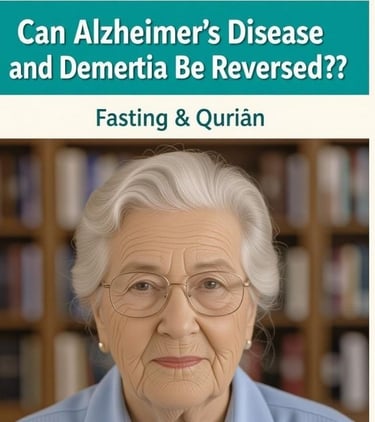





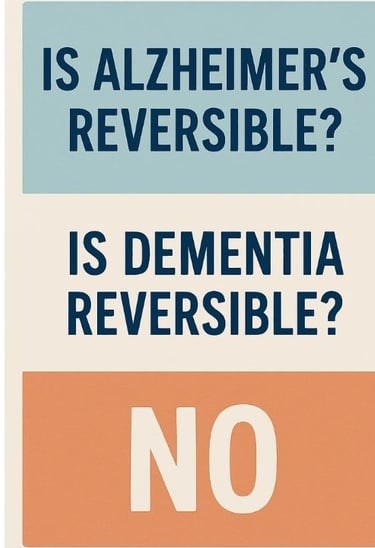

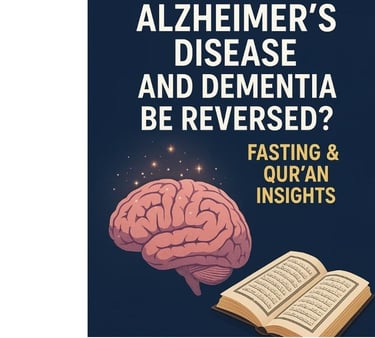

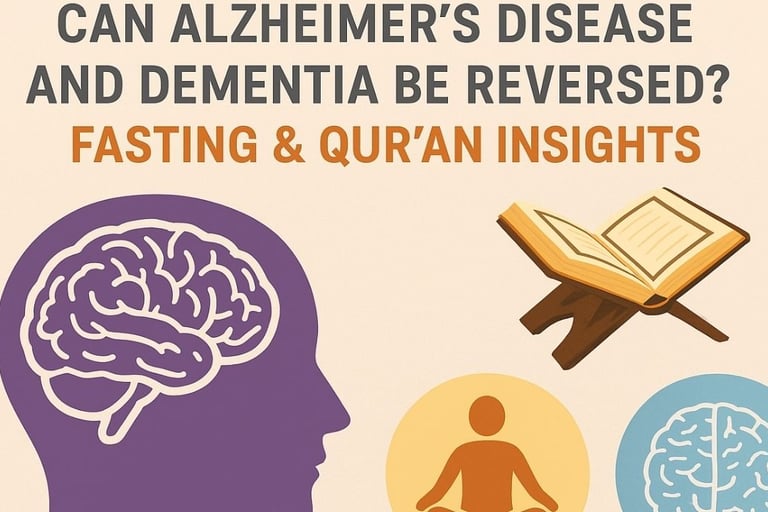




Get in touch
Address
Cairo Al Rehab
Contacts
+20 109 405 2056
hassanalwarraqi@h-k-e-m.com
